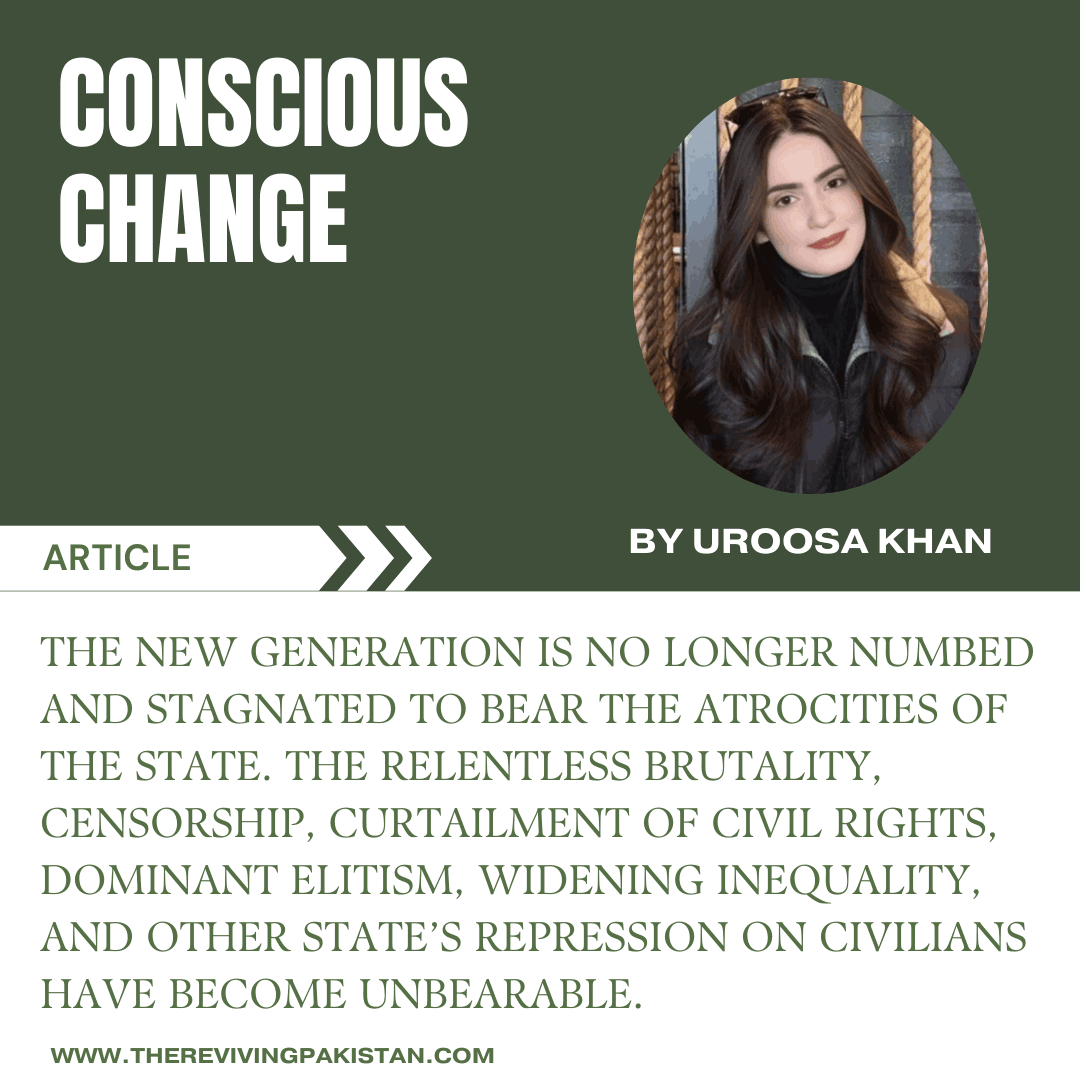About the Author(s)

Uroosa Khan
The author is an independent researcher having keen interest in foreign policy, geopolitics, and international relations.
The new generation is no longer numbed and stagnated to bear the atrocities of the state. The relentless brutality, censorship, curtailment of civil rights, dominant elitism, widening inequality, and other state’s repression on civilians have become unbearable. The educated youth are now warriors against the injustice prevailing in the society. Thus, the true change begins with a collective awakening, where the courage to unite transforms dreams into reality and voices into a powerful chorus for justice. The students of Bangladesh have created history by ousting Prime Minister Sheikh Hasina from power. Her long tenure was marked by repression, extrajudicial killings, forced disappearances, crackdowns on opposition leaders, and misgovernance. Bangladesh was verging toward one-party rule, and dark clouds of dictatorship and fascism were hanging over its head. A student-led protest in Bangladesh that started over abolishing the quota system ended up demanding the premier’s resignation. It is appreciable that the national awakening among the Bengalis about standing up for their rights to challenge the status quo is praiseworthy. These are the symbols of the conscious nations with critical analytical thinking and reasoning.
On the other hand, the mass movement compelled the dynastic politicians, Rajapaksas, who ruled Sri Lanka for a considerable period of time, to resign. The political history of Sri Lanka has a good resemblance with that of Pakistan. The mind automatically questions oneself upon seeing the conscious masses in other countries: where are we as Pakistanis? Indeed, Pakistan faces serious challenges in terms of electoral fraud, pilfered public mandates, forced disappearances, unemployment, macroeconomic and microeconomic instability, extractive political and economic institutions, rampant crimes and corruption, and the nonentity of the middle class in the course of political decision-making, etc. Despite all these issues, we have failed to revolt against the status quo and forge social movements which fight for our cause, not for political parties or leaders.
The unity among our people is not as strong as that in other nations. For instance, when Balochs are fighting for their cause, Pashtuns, Sindhis, or Punjabis fight for theirs separately, and there is discontent among the rest of the ethnicities for one to support the other. We never came out with a fight unitedly for the nation’s cause or for our beautiful country, Pakistan. The educated youth is present in Pakistan, and we are a conscious nation; however, we are standing at the back of the queue to stand unitedly to struggle for our rights and democracy in our country.
How are we going to begin this journey of conscientiousness in order to make our voices heard and our rights recognized?
However, education holds the key to a responsible nation. The youth must be made aware about their rights, the Constitution, and the ‘why’ of democracy. In this context, social media, seminars, and community discussions can play a big role in raising awareness. We have to recognize our diversity as our strength and not as our weakness. In this respect, we can then create platforms for inter-ethnic dialogue and cooperation that can foster unity. Concerns must be shifted from regional or ethnic issues to national concerns. This would lead to a built society that is all-inclusive—one in which everybody feels represented and valued—through celebrations of diverse cultures and histories.
Such civic engagement, if imbued at an early age, is likely to create responsibility and a sense of ownership in the citizen. Hence, schools and universities can make a contribution to this end by having courses in civic education. Getting the youth involved in community service and local governance will help them recognize how actions in society affect others. Similarly, media literacy programs can provide a way to critically estimate information received by citizens and develop resistance against manipulation.
Protest and advocacy of rights can be peaceful, teaching changes. Learning from non-violent movements across borders, the Pakistani people can organize and join peaceful demonstrations to demand their due rights. Coalitions among different organizations of civil society will raise voices that will increase their impact. Youth leadership and participation would definitely bring much-needed freshness in terms of ideas and energy to the movement for change. There is a need to mentor and support young leaders to take up various responsibilities within political and social organizations. Student unions and other such youth platforms have a potential to hone the capacity for leadership among youth and advocate effectively for the communities. Thus, the ability to inspire nationalism and patriotism is able to instigate in people the need to work collectively towards the upliftment of the nation.
Building grassroots movements that reach out to ordinary people and deal with their everyday concerns may provide the basis for larger social movements. Movements should be broad-based and led by the same concerns: justice and equality. Grassroots activism is about empowering communities to take charge of their own development and advocating for communities’ rights.
Such actions can help in awakening the national consciousness for a common platform within which to move collectively forward toward democracy, justice, and people’s rights. The process may be bitter, but determination and unity can make a difference. Be prepared to learn from the examples set by Bangladesh and Sri Lanka, striving toward a society where the voice of every citizen is heard.The future of Pakistan depends upon the collective efforts of standing for what is right and just.

